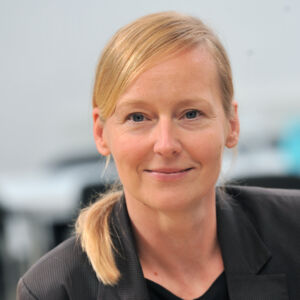Heat, drought and heavy rain: The consequences of climate change have long been clearly noticeable. Cities and municipalities are particularly affected, since flooding or heat islands within cities represent a danger for residents as well as municipal infrastructures. However, municipalities are facing numerous challenges when it comes to planning and implementing concrete measures for climate adaptation. Under the leadership of ISOE – Institute for Social-Ecological Research, the KomKlAn research team aims to improve the knowledge base on municipal climate adaptation in Germany and thus to strengthen municipal climate adaptation activities. The Project is commissioned by the German Federal Environment Agency.
Germany must brace itself against extreme weather events. Therefore, in mid-July 2023 the federal cabinet presented a bill that provides for concrete plans at all levels of government with the aim to mitigate climate impacts. Particularly at municipal levels a lot needs to be done, as cities, municipalities and counties are responsible for providing public services, such as the supply of drinking of water or the implementation of preventive measures for flood protection.
It has become apparent, however, that particularly small to medium-sized municipalities are currently struggeling to cope with the wide range of necessary climate adaptation measures.
While climate protection is now well established in many municipalities, the same can often not be said of municipal climate adaptation – if only because knowledge of concrete solutions or support services is lacking among municipal actors. In order to get cities and municipalities ready to create the conditions for effective climate adaptation and to implement adequate measures, the KomKlAn research project is looking at how to offer support on the path to climate resilience.
Municipalities as central actors in climate adaptation
The aim of the research project is to improve the knowledge base on municipal climate adaptation in Germany and to strengthen municipal climate adaptation activities. To this end, the research team is conducting a representative survey of municipalities in order to determine the current status of municipal adaptation to climate change and to be able to better and regularly record climate adaptation activities at the municipal level in the future. A special focus is on small and medium-sized municipalities.
In addition, municipalities should be enabled to determine and evaluate their own adaptation progress. For this purpose, the research team first identifies suitable indicators for measuring climate adaptation progress and, based thereon, develops an online scoring tool that is intended to enable municipalities to independently collect and evaluate data and information on their status and progress. In order to enable a user-friendly design of the tool, the development and testing is carried out together with selected municipalities in a transdisciplinary process.
About the project
The research project “KomKlAn – Where do municipalities stand in adapting to climate change and how do they arrive at multifunctional and transformative adaptation solutions?” is commissioned by the German Federal Environment Agency. Research partners are ISOE – Institute for Social-Ecological Research (lead), UP Transfer GmbH at the University of Potsdam, Factorial GmbH, SOKO Institute for Social Research & Communication GmbH and e-fect dialog evaluation consulting eG.
Scientific contact:
Dr. Thomas Friedrich
Phone +49 69 707 6919-60
thomas.friedrich@isoe.de
www.isoe.de
Pressekontakt:
Melanie Neugart
Phone +49 69 707 6919-51
neugart@isoe.de
www.isoe.de
Contact:


